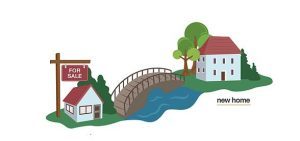
The majority of my clients have stellar qualifications: established careers and businesses, excellent credit ratings, solid down payment funds, etc. They are truly awesome individuals who will almost certainly receive mortgage financing without a hitch.
Almost certainly.
With multiple offers, bidding wars, and over-asking-price bids now common as far afield from Vancouver proper as Port Coquitlam and beyond, clients find themselves, in the heat of the experience, contemplating a subject-free offer.
But there’s often an unanticipated hitch: the property itself.
A client would be hard pressed to find a Realtor to write an offer without a ‘subject to inspection‘clause, and for good reason. Similarly, a client should be hard pressed to find a Mortgage Broker advising an offer without a ‘subject to financing‘ clause.
This is because no banker or Broker can give a client 100% assurance of financing without factoring in the actual specific property details. Until an appraisal is reviewed and approved, the application is not complete. And there are some properties that some lenders simply will not lend against.
There are the obvious examples that lenders tend to exclude;
- Properties containing Asbestos, Aluminium wiring, Underground Oil tanks
- Re-mediated former grow-ops
- Re-mediated drug labs.
There are also less obvious ones;
- live-work units
- row-homes (attached non-strata properties)
- properties smaller than 450 sq ft
- properties on lease land, Government, First Nations, or Private.
Regarding the appraisal process, there is more than simply the valuation question to be answered. In fact, valuation is rarely the challenge in our market, as many properties ‘auto-approve’ when the value is below $750,000. (This is not true of ALL properties below $750,000 by a long shot; many lenders condition all strata properties for instance for a full appraisal no matter the purchase price.)
What is being looked at other than value in the appraisal report?
A key complication is a little thing called ‘Remaining Economic Life or REL’ (as opposed to the ‘physical life’) of the home. This refers to how long this specific house is likely to remain standing on this property under the current care it is receiving.
Perhaps we have an otherwise perfectly habitable home for decades to come ─ lots of remaining ‘physical life’. The problem is that lenders are looking for remaining ECONOMIC life rather than the remaining physical life. The question is not “How long can that house be standing there?” it is “How long does it make economic sense for that house to be standing there given current market conditions?”
There may be a problem if it is located in a neighbourhood where many of the older homes are being purchased to be demolished and replaced with multimillion dollar homes. That leaves the purchase looking like a speculative land play or potential knock-down. As such, the remaining economic life is perhaps 15 years or less stated in the appraisal report.
Or maybe the property is a ramshackle house in a state of disrepair. It looks like the bargain of the age on paper, and perhaps the purchaser is a contractor planning to bring the home back into a wonderful state of repair. However the appraisal must view the current remaining economic life of the home ‘as-it-sits’ not ‘as-is-planned’. We have seen homes like this with REL as short as five years.
What is this ‘Remaining Economic Life’ exactly?
Economic life is the total period of time which the improvements (house/buildings) contribute to the overall property value. The total economic life of a typical Lower Mainland home is generally accepted to be 65 years. Economic life and physical life can differ widely and physical life usually exceeds economic life. Renovations and updates can increase a property’s physical and economic life, and poor maintenance can shorten it. Increases in land value can also have a negative impact on remaining economic life. As older homes are torn down to make way for new ones, it makes less economic sense to keep the older one standing.
REL is the estimated time period which the improvements continue to contribute to property value. An appraiser estimates REL in part by interpreting the economic conditions, attitudes and reactions of buyers in the market.
The REL is calculated by subtracting the Effective Age from the Total Economic Life.
Economic Life – Effective Age = Remaining Economic Life
For example:
A 40-year-old home that has had substantial renovations may have an effective age of 30 years.
65 years – 30 years = 35 years Remaining Economic Life (REL)
How lenders view Remaining Economic Life (REL)
Few lenders will lend on a home with a remaining REL of less than 15 years. Also, the effective amortization will be set at the REL minus five years, which drives payments sky high, and often leaves client unable to qualify for such large mortgage payments should they even want to sign on for them.
Clients can run the risk at this point of their own awesomeness being part of the undoing of the mortgage approval. Clients with significant liquid assets and strong incomes buying a smaller, older home on the street of newly built monoliths will be viewed as most likely planning to knock the home down and build a new one.
The immediate thought: ‘But the land value alone… ’
Lenders are not in the business of writing conventional AAA-rate mortgages on properties that will be torn down. Instead this is viewed as ‘speculative’ or ‘investment/business’ lending with which come undeniably greater risks. Wherever one finds greater profits there are greater risks. Lenders price accordingly, which is why land/construction financing carries higher rates and additional fees.
A property with a habitable home standing on it is unquestionably easier to market and sell ─ and thus recover the loan balance from ─ should the lender have to step in and take over. And foreclosure is the last thing any Canadian lender wants to contemplate.
It will take on average 18 months of no payments before a lender has gained control of and sold a property through the foreclosure process. And at the end of it said lender must seek out the defaulting client and write them a cheque for the remaining equity that was in the property, all the while honouring the original interest rate in most cases.
It is nothing like the US system at all. (which is a wonderful thing for us)
So lenders avoid any whisp of risk, preferring security. Ideally in the form of a habitable home on a lot that is going to look decades from now much as it does today.
Clients would be wise to also minimize risk, by either writing offers that contain a ‘subject to inspection’ and a ‘subject to financing’ clause, or by having a detailed conversation with a skilled Broker well in advance of writing a subject-free offer.
If you have any questions, contact a Dominion Lending Centres mortgage professional near you today.
Contact me for your best mortgage options 705.669.7798 or trina@ndlc.ca
#trinamortgages #mortgages #ndlc #freedomofchoice
#bestmortgageforme #executive #firstimehomebuyer
If you found this information valuable, I only ask that you share with your friends and family.
Copyright DLC










